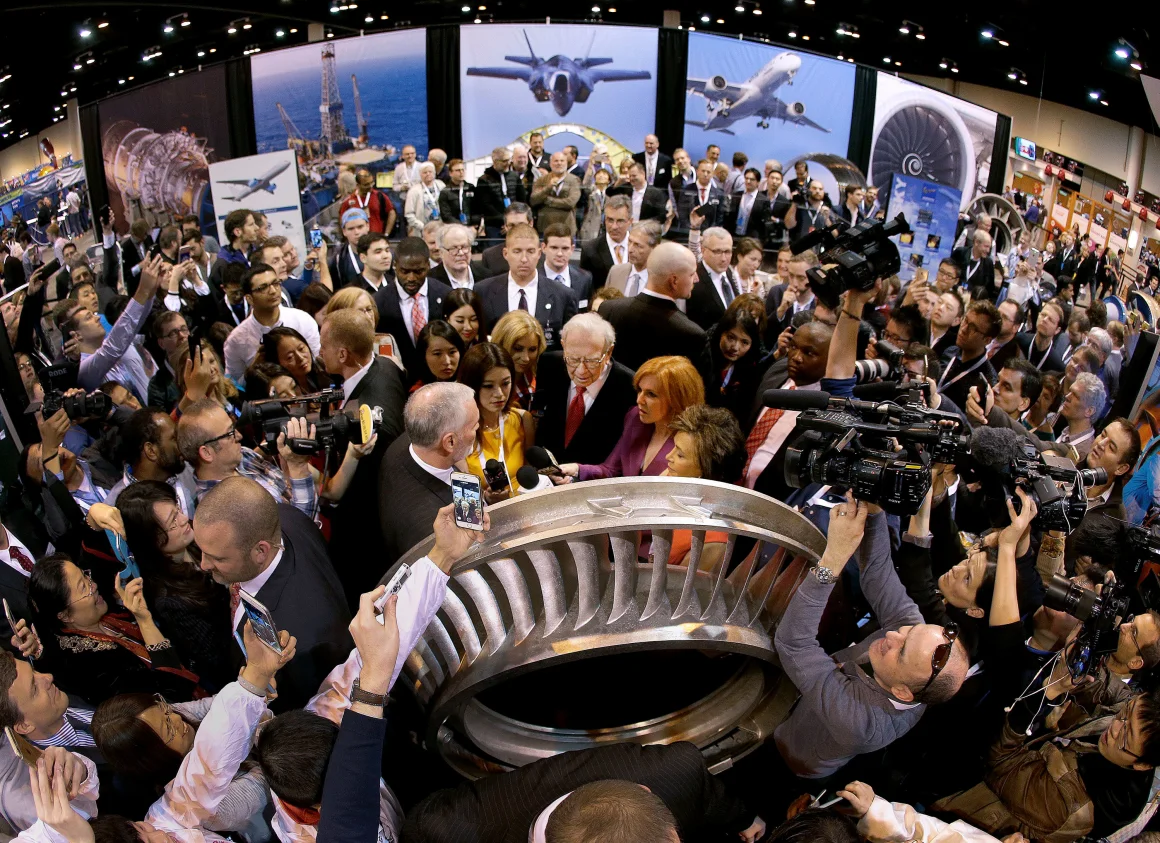Introduction: The End of an Unprecedented Era
The financial world stands at a pivotal juncture as Warren Buffett, the revered “Oracle of Omaha,” prepares to step down from his leadership role at Berkshire Hathaway by the close of 2025. This transition marks the culmination of an extraordinary six-decade journey, a period during which Buffett transformed a struggling textile enterprise into a sprawling conglomerate valued at over a trillion dollars. His investment acumen, coupled with his folksy wisdom and unwavering long-term perspective, has not only generated unparalleled wealth for shareholders but has also profoundly shaped the landscape of modern finance.
As Buffett takes his final bow, the reins of Berkshire Hathaway will pass to a new generation of leadership, ushering in an era of both continuity and potential evolution for this iconic company. The implications of this transition are far-reaching, impacting not just the company’s future trajectory but also the broader investment community that has long looked to Buffett for guidance and inspiration.
The Architect of an Empire: Warren Buffett’s Enduring Legacy
Warren Buffett’s tenure at the helm of Berkshire Hathaway is nothing short of legendary. Beginning in 1965 with the acquisition of a controlling stake in a struggling textile mill, Buffett meticulously built a diversified empire encompassing businesses ranging from insurance giants like GEICO to iconic consumer brands like See’s Candies and Dairy Queen, as well as significant holdings in publicly traded companies such as Apple and Coca-Cola. His investment philosophy, rooted in value investing principles championed by his mentor Benjamin Graham, emphasized the importance of identifying undervalued companies with strong fundamentals and holding them for the long term.
This patient and disciplined approach, often counter to prevailing market sentiments, yielded remarkable returns for Berkshire Hathaway shareholders over the decades, solidifying Buffett’s reputation as one of the greatest investors of all time. Beyond his investment prowess, Buffett’s leadership style, characterized by decentralization, trust in his managers, and a commitment to ethical conduct, fostered a unique corporate culture that contributed significantly to Berkshire’s enduring success. His annual letters to shareholders, filled with insightful market commentary and timeless business wisdom, became must-reads for investors worldwide, further cementing his status as a financial sage.
The Chosen Successor: Greg Abel and the Promise of Continuity

For years, the question of who would succeed Warren Buffett has been a subject of intense speculation within the investment community. In a move that provides a clear path forward, Buffett has publicly endorsed Greg Abel, the current Vice Chairman responsible for Berkshire Hathaway’s vast array of non-insurance operations, as his chosen successor for the Chief Executive Officer role. Abel, 62, has been with Berkshire Hathaway Energy since 2000 and has steadily risen through the ranks, demonstrating strong leadership and a deep understanding of the company’s diverse businesses.
His extensive experience in managing complex industrial and energy operations positions him well to navigate the multifaceted nature of the Berkshire Hathaway conglomerate. Buffett’s explicit confidence in Abel’s capabilities underscores the board’s commitment to a seamless transition and the preservation of the company’s core values and operational philosophy. While the formal appointment is anticipated, Abel’s long-standing involvement and Buffett’s endorsement provide a strong indication of the future leadership direction of Berkshire Hathaway.
Buffett’s Remaining Role: A Guiding Hand in the Transition
While stepping down from the CEO role, Warren Buffett has indicated his intention to remain involved with Berkshire Hathaway, albeit in a less demanding capacity. He has stated that he will “hang around” and believes he can still offer valuable insights and guidance as the company navigates this significant transition.
Furthermore, Buffett has made it clear that he has no plans to sell his substantial stake in Berkshire Hathaway, signaling his continued long-term commitment to the company’s success. His son, Howard Buffett, is slated to succeed him as the non-executive chairman, further ensuring a degree of continuity in the company’s governance structure and a continued connection to the Buffett family’s legacy. This arrangement suggests a thoughtful and phased handover of leadership, allowing Greg Abel to assume the CEO responsibilities while still benefiting from Warren Buffett’s unparalleled experience and wisdom.
Berkshire Hathaway Under Abel’s Leadership: Navigating the Future Landscape
The transition to Greg Abel’s leadership is expected to usher in a new era for Berkshire Hathaway, one that will likely be characterized by both continuity and subtle shifts in strategic emphasis. Abel is widely anticipated to uphold the company’s decentralized operational model, empowering the CEOs of its various subsidiaries to continue managing their businesses with significant autonomy. This approach has been a cornerstone of Berkshire’s success, fostering entrepreneurial spirit and accountability within its diverse portfolio. Furthermore, Abel is expected to remain committed to the core principles of value investing and long-term capital allocation that have defined Buffett’s tenure.
However, given Abel’s background in operational management, there is speculation that he might bring a more active approach to capital deployment, particularly in light of Berkshire’s substantial cash reserves. The company’s significant cash pile presents both an opportunity and a challenge, and Abel’s strategic decisions regarding acquisitions and investments will be closely watched by the investment community. While replicating Buffett’s extraordinary investment track record will be a formidable task, Abel’s proven leadership and strategic acumen position him well to guide Berkshire Hathaway through the evolving economic and market landscape.
Potential Shifts and Emerging Priorities:
Under Greg Abel’s leadership, Berkshire Hathaway might witness certain shifts in its strategic priorities. While the fundamental principles of value investing and long-term holding are expected to remain intact, Abel’s operational background could lead to a greater emphasis on enhancing the performance and synergies within Berkshire’s existing businesses. This might involve a more active role in strategic planning and resource allocation across the various subsidiaries. Furthermore, the sheer scale of Berkshire Hathaway presents unique challenges in identifying investment opportunities that can meaningfully impact the company’s overall returns.
Abel might explore different avenues for capital deployment, potentially including larger, more transformative acquisitions or a greater focus on internal growth initiatives within its existing businesses. The company’s approach to technology investments and its engagement with emerging industries will also be closely scrutinized under Abel’s leadership. While Buffett has historically been cautious about investing in rapidly evolving technology companies, Abel might adopt a more nuanced approach, recognizing the increasing importance of technology across various sectors.
Challenges and Opportunities in the Post-Buffett Era:
The transition to a post-Buffett era presents both significant challenges and compelling opportunities for Berkshire Hathaway. One of the primary challenges will be maintaining the aura and influence that Warren Buffett has cultivated over the decades. His pronouncements on the economy and individual companies often moved markets, and replicating that level of influence will be difficult. Furthermore, the sheer size of Berkshire Hathaway makes it increasingly challenging to find undervalued companies that are large enough to significantly impact its overall portfolio.
Navigating the complexities of managing such a vast and diverse conglomerate will also require adept leadership and strategic vision. However, the transition also presents opportunities for Berkshire Hathaway to evolve and adapt to the changing economic landscape. Abel’s operational expertise could lead to greater efficiencies and synergies within the existing businesses. The company’s substantial cash reserves provide ample firepower for strategic acquisitions and investments that could drive future growth. Moreover, a new generation of leadership might bring fresh perspectives on emerging technologies and evolving market trends, potentially opening up new avenues for value creation.
The Enduring Legacy and the Path Forward:
Warren Buffett’s impending retirement marks the end of an unparalleled era in the history of finance. His wisdom, integrity, and long-term vision have left an indelible mark on Berkshire Hathaway and the broader investment world. As Greg Abel steps into the role of CEO, he inherits a company built on a strong foundation of enduring values and a remarkable track record of success. The transition will undoubtedly be closely watched, but the carefully planned succession and the continued involvement of Buffett in an advisory capacity suggest a commitment to stability and continuity.
While the future may hold subtle shifts in strategic emphasis and operational approaches, the core principles that have guided Berkshire Hathaway for decades are expected to remain firmly in place. The next chapter for Berkshire Hathaway will be written under Abel’s leadership, building upon the extraordinary legacy of the Oracle of Omaha while navigating the challenges and opportunities of a rapidly evolving world. The investment community will be keen to observe how this iconic company adapts and thrives in the years to come, carrying forward the enduring principles of value, patience, and long-term vision that have defined its remarkable journey.

